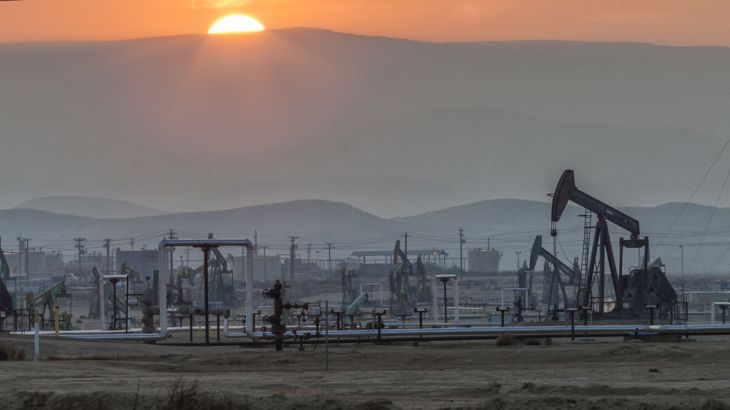
Crude reality: Winners and losers in the oil crisis
We explore the demise of oil, from production companies in the North Sea to a former Caspian tiger fallen on hard times.
As the oil price has dropped more than 70 percent since the summer of 2014, the oil industry is facing its deepest downturn in more than two decades.
The price of oil has decoupled from the actual cost of production; it is becoming unprofitable and the effects are being felt across the globe.
Keep reading
list of 4 itemsWhat role do US tech giants play in powering Israeli war crimes?
Jobless engineers, MBAs: The hidden army of Indian election ‘consultants’
ByteDance prefers TikTok shutdown in US over sale: Report
Nigeria and Angola, Africa’s two biggest oil producers, are both in talks with the World Bank about support for their strained state finances.
Budgets in Russia, Venezuela, Colombia, Ecuador, Mexico, Saudi Arabia and Canada are in deficit, which means cuts in public spending.
Big oil is cutting jobs and capital spending, in fact BP just reported its worst annual loss in 20 years, and Shell reported an 80 percent slide in profits for 2015.
But there are winners too: China, India, Japan, and South Korea are among the largest importers of oil, so they are benefiting from the dropping oil price.
We are backtracking the demise of oil – from production companies in the North Sea to a former Caspian tiger fallen on hard times, Kazakhstan, to find out who are the winners and losers of the oil price drop and what it means for the people.
Also on Counting the Cost: Ireland is now the fastest growing economy in the EU, but has its post-bailout success come at the expense of the country’s poor?
And how will it affect Ireland’s economy and its people if its closest neighbour, the UK, decides to leave the European Union?
Plus, after years of negotiations, the controversial Trans-Pacific Partnership Agreement (TPPA) has been signed at a ceremony in New Zealand. But sealing the deal on paper doesn’t mean an end to the opposition, so what is the future of TPPA?